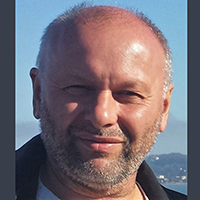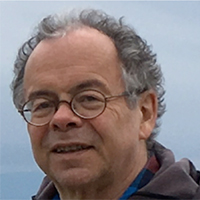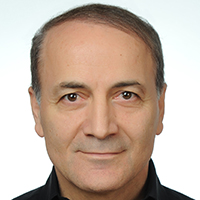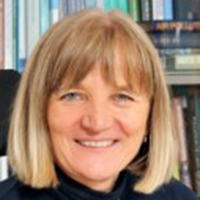


Dept of Soil Science of Temperate Ecosystems and
Dept of Agricultural Soil Science
Georg August University of Göttingen
Göttingen, Germany
Together with his group, Yakov focuses on soil biogeochemistry with long-term and deep expertise for processes of C and N cycles, priming effects and nutrient mobilization. His special interests are in soil–plant–microbial interactions in soil hotspots – locations with very high activity and abundance of microorganisms like rhizosphere, detritusphere, biopores. Yakov's groundbreaking works are in the fields of rhizodeposition, fate of low molecular weight organic substances in soil, priming effects, visualization of enzyme activities, and localization of root exudation. These processes are studied depending on land use and soil degradation, as well as such global change components as temperature, drought, elevated CO2 in the atmosphere. Yakov's group made a number of innovative studies to pedogenic carbonates, biochar stability, competition of roots and microorganisms for nutrients, effects of plant photosynthesis on CO2 efflux from soil. The applied studies are focused on C sequestration, soil fertility improvements, and reforestation effects.
To investigate these processes, Yakov's group uses a broad range of stable (13C, 15N) and radioactive (14C, 33P, 137Cs) isotopes applications and combine them with biomarkers (PLFA, amino sugars, neutral sugars) as well as microbial activity parameters (enzyme and respiratory activities, microbial growth rates).

Dept of Plant and Microbial Biology
University of Zurich, Switzerland
Enrico Martinoia is the head of the laboratory for Molecular Plant Physiology at Zurich University. He participated in several EU projects and actually is a member of the advisory board of COS at Heidelberg University and Agricultural Biotechnology Research Center (ABRC), Academia Sinica, Taipei, Taiwan. He is also an editor for Plant Cell Physiology and Molecular Plant. Enrico’s research focus is on transport processes of metabolites and nutrients. His main projects include transport of metabolites and heavy metals across the vacuolar membrane and the role of ABC transporters in phytohormone transport. During the last years he and his collaborators discovered how arsenic and cadmium and their corresponding conjugates are transported into the vacuole. This work has been awarded with the Cozarelli prize from PNAS for the best paper in the Applied Biological, Agricultural, and Environmental Sciences section. Starting from this work, attempts were made to produce plants that can either grow better on heavy metal contaminated soils or that transfer less arsenic to the edible parts. This is especially important in rice, a plant taking up much arsenic and being a staple food for a large part of humans. A second main topic focuses on phytohormone transport. Among these studies special emphasis is given on the role of strigolactones. Strigolactones are exuded from roots to the rhizosphere in response nutrient deprivation to promote mycorrhization. We have identified a strigolactone transporter that has a great impact on mycorrhization and hence on plant nutrition. Recent results show that by altering the strigolactone transport activity we can modulate mycorrhization efficiency and biomass production.

Faculty of Engineering and Natural Sciences
Sabanci University
Tuzla, Istanbul, Turkey
Ismail Cakmak received his Ph.D. at the University Hohenheim in Stuttgart, Germany. He is Professor at the Sabanci University-Istanbul in Turkey. He has published over 165 peer-reviewed journal articles, and these articles received around 19 400 citations (Hirsch Index: 71) based on data given by Google Scholar. Over past 8 years he is coordinating international HarvestZinc project in 12 countries under the HarvestPlus program . He is editorial board member of the journal "Plant and Soil” (Springer). He was also “Honorary Theme Editor” of the “Encyclopedia of Life Support Systems”, edited the section entitled “Impacts of Agriculture on Human Health and Nutrition “published by UNESCO. He is elected member of “The Academy of Europe” and "The Science Academy" of Turkey.
He has received IFA (International Fertilizer Association - Paris) “International Crop Nutrition Award" in 2005, the Australian Academy of Technological Sciences and Engineering Crawford Fund “Derek Tribe Award Medal” in 2007, “Georg Forster Research Award" from the Alexander von Humboldt Foundation-Germany in 2014, International Plant Nutrition Institute IPNI-Science Award in 2016 and The World Academy of Sciences 2016-Agricultural Sciences Prize.
His current research is focused on biofortification of food crops with zinc, iodine and iron, and better understanding the role of mineral nutrients in stress mitigation in crop plants.

Jožef Stefan Institute
Ljubljana, Slovenia
Prof. dr. Milena Horvat is a Head of the Department of Environmental Sciences (since 1997) of the Jožef Stefan Institute and a Dean of the International Postgraduate School Jožef Stefan (since 2016). She was a coordinator of the Center of Excellence of Environmental Technologies (2004-2009) and currently coordinates two EU projects: 1) ERA Chair Iso-food (Isotopic techniques in food safety, security and traceability) (2014-2019) , and 2) MASSTWIN (Spreading Excellence in widening participation in support of mass spectrometry and related techniques in health, Environment and Food Analysis) (2016-2019) . Her recently awarded EURAMET project MercOx “Traceability of oxidized mercury measurements” (2017-2020) also falls into her main domain of interest in analytical chemistry. Her main expertise is related to mercury research activities which are interdisciplinary and cover the areas of analytical chemistry, human health with a focus on exposure science, contaminated sites, marine environment, and lately also clean technologies and sensor development. Based on her basic training and education as analytical chemist, she developed and significantly contributed to standardization and harmonization of analytical methods and production of reference materials. By this she contributed to international comparability of data on a global scale.